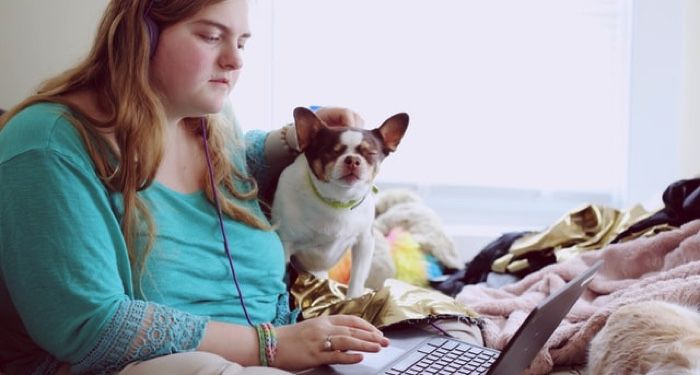A month ago, I sat staring at my computer screen trying to figure out how to ask my book club organizer to make sure everyone’s book picks had audiobook editions available. Of course, on the surface, this should be easy. “Hey, Jane! Thank you for organizing! I just wanted to check in and ask if we could ask the group to check to make sure an audiobook is available for each month’s pick.”
Easy, right? Well, not really.
I remember when I first got to college and asked my roommate a gazillion questions about how things worked around campus and in my new classes. After my first day, I asked her, “So, I don’t see anything on here about audiobooks. Do you think they allow audiobooks?” She said, “No, I don’t think they do. They don’t really count, do they?”
Sure enough, through all four years of undergrad, professor after professor explicitly stated that audiobooks did NOT count as reading. “No excuses!” In grad school, my health had deteriorated to the point I couldn’t even hold a book for long periods of time. I found Librovox and listened to novels like The Jungle and The Octopus. The teacher who gave me some of the best grades in my life never knew I didn’t have the books in print.
Now, as a professional book person who interviews authors and talks about books online, I still hold my breath when asking publicists if I can get the audiobook edition of a book for an interview. Other folks I’ve worked with have asked if I “really need” the audio edition or is it just sometimes? Or they’ve said something like, “Oh, you can’t read print all the time? I thought you could read it if you really wanted to.”
So no, after over a decade of people telling me my kind of reading doesn’t count, asking even the kindest person in the world to make sure audiobook editions are available for me is not easy. In this case, my new book club enthusiastically researched and proposed books that I could access. I almost couldn’t believe it.
Because, in my everyday work life, that’s definitely not how things usually turn out. In the bookish world, the default reader is still a print reader. So when you’re a book professional, there’s an expectation you will read everything in print. Engaging with the print version of the text is still considered the most “true” or sacred kind of reading.
Alternatively, able-bodied people asked to make the needed accommodations for disabled readers a priority often behave as if they’re doing disabled people a favor or that the disabled people needing these accommodations are some sort of inconvenience. Accessibility is not a favor. It is a right.
Thousands of book worms with disabilities like mine don’t read via print. Is our love of books any less passionate because we don’t read via words on a page or screen? No, it’s not. Embracing a more inclusive perspective on books and reading can’t happen without also fully supporting disabled readers in all of our forms.
So I ask all book club organizers, bookish influencers, book review editors, literary podcasters, and publishing folks to consider the various ways their work in the literary world could be more accessible. Do all of your book club selections have audio editions? Does the school library have audio editions of required book titles? Are the books that you feature on your website or podcast accessible to disabled readers? Does your book review website cover audiobooks?
There’s a better world out there for disabled readers, but we need able-bodied gatekeepers to take their allyship seriously to help us build it.

